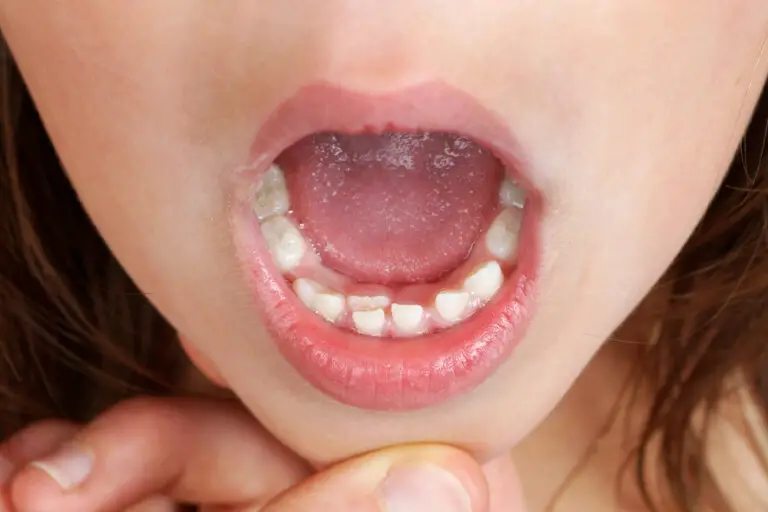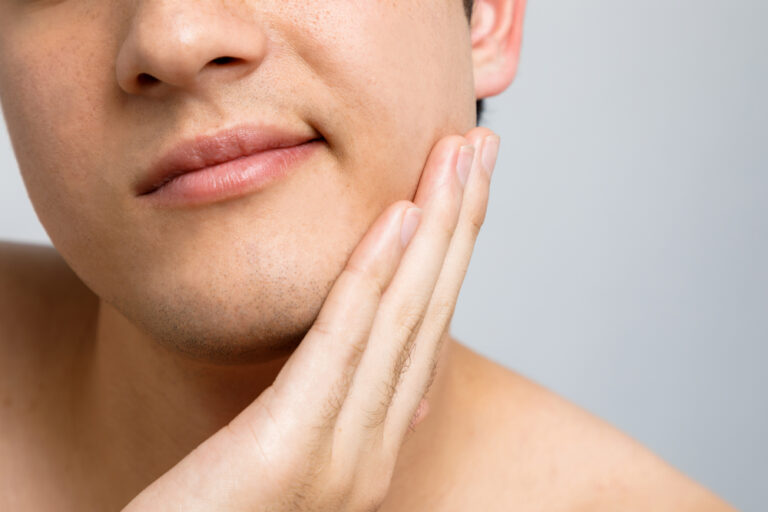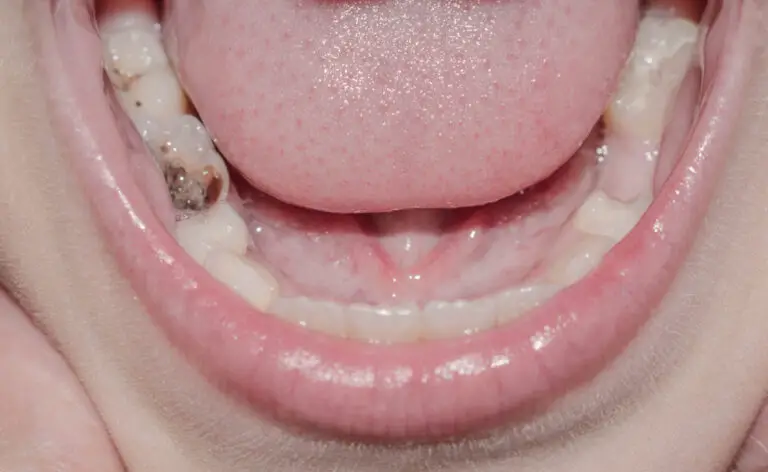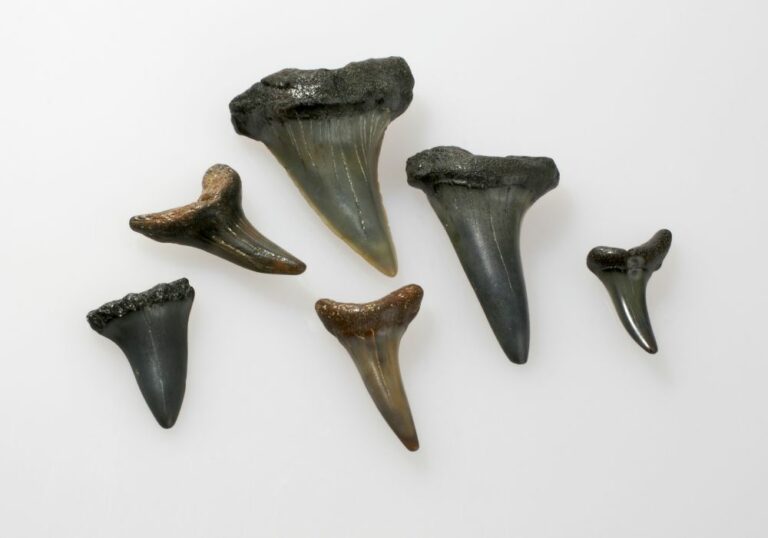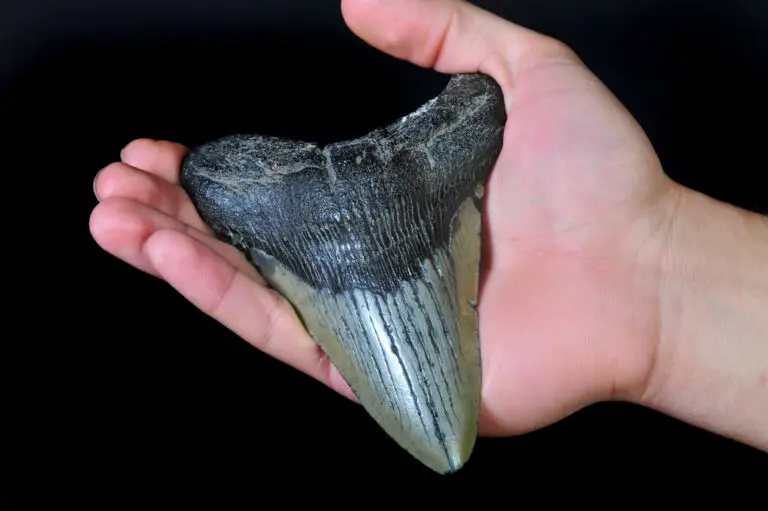Having all four wisdom teeth become suddenly painful can be an extremely unpleasant and confusing experience. But what causes this phenomenon, and what can you do to find relief? This in-depth article dives into the reasons behind simultaneous wisdom tooth pain and provides tips to alleviate discomfort.
What are wisdom teeth and how do they develop?

Wisdom teeth are the third and final set of molars that emerge during the late teens to early 20s. Most people have four wisdom teeth, one in each corner of the mouth. They are referred to as “wisdom” teeth because they generally erupt once a person is fully matured.
Wisdom tooth anatomy
Wisdom teeth have the same basic structure as other molars, with a crown, root, and pulp inside containing soft tissue, nerves, and blood vessels. The crown is the visible portion, while the root anchors the tooth into the jawbone. But compared to other molars, wisdom teeth are positioned farther back in the mouth and have less space to emerge properly. As a result, they tend to be smaller and have more irregular or angled root formations.
Wisdom tooth development process
Wisdom teeth form and develop under the gums in a similar fashion to other teeth. Initially, the enamel crown forms, followed by dentin and then the root over a period of years. But wisdom teeth do not usually begin to emerge through the gums until the late teens, and can continue erupting until the early 20s or even later. During this process, the gum tissue thins out and the tooth slowly erupts until it fully emerges and becomes functional. Some individuals have wisdom teeth that form normally and emerge without any problems. But many others experience issues due to insufficient space in the jaws.
Why might all erupting wisdom teeth suddenly hurt?
There are several key reasons why pain or discomfort can suddenly occur in all emerging wisdom teeth at the same time:
1. Pericoronitis
This refers to inflammation of the gum tissue surrounding the crown of a wisdom tooth that is in the process of erupting through the gums. It is very common for pericoronitis to affect multiple wisdom teeth simultaneously if they are all in this early development stage. Swelling, redness, and infection of the gum flaps around partly erupted teeth can cause significant pain. Food and bacteria trapped under the gum tissue compounds irritation.
2. Compacted food under gum flaps
Partially emerged wisdom teeth where the crown has broken through but the whole tooth has not fully erupted leave an opening around the gums that allows food particles to become trapped and compacted easily. This debris pressing into multiple teeth at once often causes severe pain and discomfort.
3. Bacterial infections
Poor oral hygiene and food buildup around emerging wisdom teeth encourages bacterial growth. These bacteria can multiply and spread, causing infections around the gums of multiple wisdom teeth simultaneously. Red, swollen, and painful gums signal infection.
4. Cysts around emerging teeth
The protective sac surrounding emerging wisdom teeth can sometimes fill with fluid, forming a cyst. These cysts are common with impacted wisdom teeth, as the obstructed eruption prevents fluid drainage. Cysts put pressure on nerves, resulting in pain. Multiple cysts often form concurrently around wisdom teeth trying to erupt.
5. Aggressive brushing
Overly vigorous brushing of tender gums around new erupting wisdom teeth can damage the delicate gum tissue, exposing sensitive nerves and causing significant pain. This can easily affect all wisdom teeth at once if care is not taken to be gentle.
Who is at risk for wisdom tooth impaction and pain?
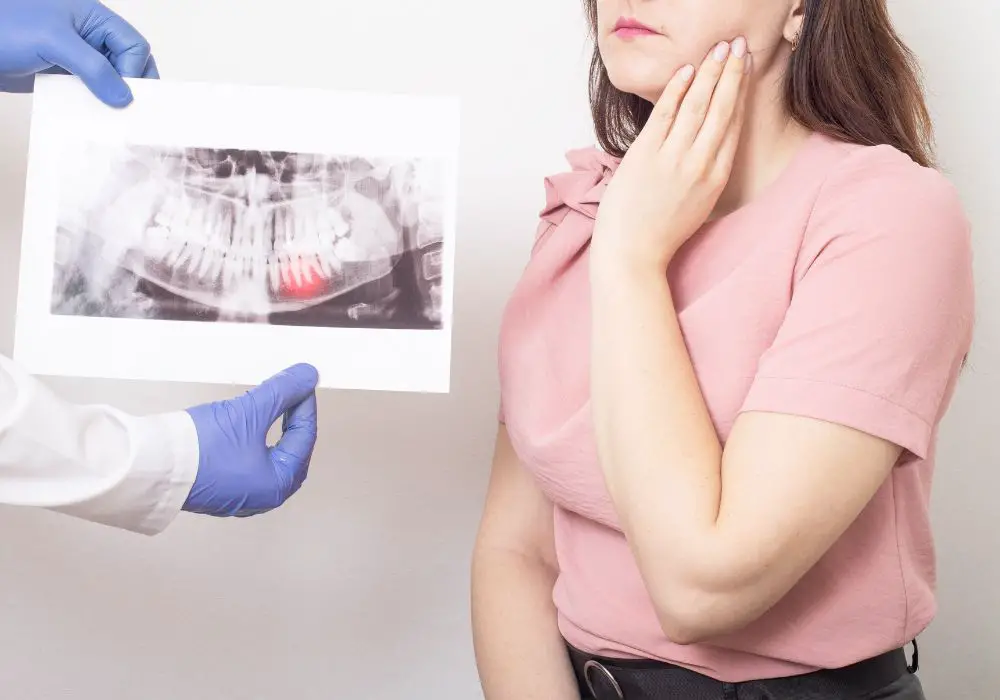
Certain individuals are more prone to experiencing pain or problems with multiple wisdom teeth as they try to emerge:
- People with poor dental hygiene: Insufficient brushing and flossing allows extra bacteria buildup.
- Smokers: Smoking is associated with increased infections and dry socket with wisdom teeth.
- Those with smaller jaws or crowding: Less space increases chances of impaction.
- Older age at time of emergence: Wisdom teeth may have more difficulty erupting through denser gum tissue.
Tips for relieving pain from multiple erupting wisdom teeth
If you have pain or discomfort in all of your wisdom teeth as they try to emerge, there are some methods you can try at home to alleviate irritation:
1. Maintain diligent oral hygiene
Gently brushing and flossing around the painful teeth helps dislodge food and keep the area clean. Use an antiseptic medicated mouthwash to prevent infection as well.
2. Rinse with warm salt water
Swishing and gargling with a salt water solution can help draw out swelling and fluid buildup, while also flushing away stuck particles. Dissolve 1/2 teaspoon salt in a glass of warm water and rinse.
3. Use over-the-counter pain relievers
Non-prescription anti-inflammatory medications like ibuprofen, naproxen, or acetaminophen can provide temporary relief for irritated wisdom teeth. Follow dosage instructions carefully.
4. Apply cold compresses
Applying an ice pack or cold compress against the outer cheek near the painful wisdom teeth can help reduce inflammation and swelling. Do not apply ice directly on skin.
5. Get wisdom teeth removed if needed
If at-home methods provide only temporary relief, consult an oral surgeon about wisdom tooth extraction. This permanently resolves pain and problems from impacted or problematic wisdom teeth.
Professional treatment for recurring wisdom tooth pain
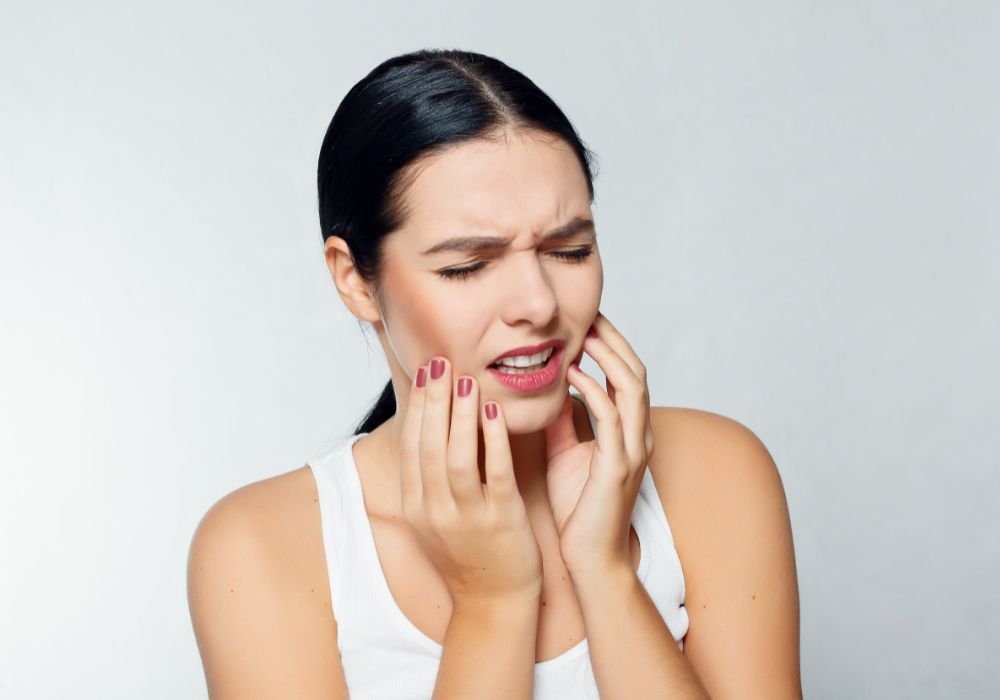
Seeing a dentist promptly is wise if you have recurring pain in all four wisdom teeth. Here are some common professional treatment options:
- The dentist will examine teeth and take x-rays to check for impaction and infections.
- Antibiotics may be prescribed to clear any infections before resorting to extraction.
- If deemed necessary, a referral will be made to an oral surgeon for removal of problematic teeth.
- Extractions are done under local or general anesthesia, depending on case complexity.
- Follow all postoperative instructions carefully to facilitate proper healing.
- Regular dental visits are key to maintaining health of any remaining teeth.
Q&A on simultaneous wisdom tooth pain
Below are answers to some frequently asked questions about having pain in all wisdom teeth at the same time:
Is it normal to have pain in all wisdom teeth simultaneously?
It is fairly common to have pain or discomfort in all four wisdom teeth at once as they erupt, due to their shared environment and tendency towards impaction.
Does pain in all wisdom teeth always mean they should be removed?
Not necessarily; minor irritation may resolve on its own after full eruption. But if infections and pain persist, removal may be required. Seek professional dental evaluation.
When should I see a dentist for pain in all four wisdom teeth?
You should arrange an appointment promptly if you have pain in all wisdom teeth. The dentist can examine for impaction and infections and provide appropriate treatment.
What types of pain medication can I take?
Over-the-counter NSAID medications like ibuprofen are helpful for temporary relief. Prescription pain medication may be needed for severe cases. Follow dosage recommendations.
How long does wisdom tooth pain last if teeth are not removed?
It varies greatly. Mild cases may resolve in weeks with eruption. But severe impaction can prolong pain for months or longer if extraction is not pursued.
Conclusion
Having all your wisdom teeth become painful simultaneously can certainly be an unpleasant situation. But understanding the most common reasons behind this phenomenon will help you address it appropriately. Using conservative at-home pain relief methods may resolve temporary irritation in mild cases. However, consulting a dentist promptly is wise if pain persists, as extraction is often necessary for problematic wisdom teeth. With professional guidance, you can say goodbye to wisdom tooth pain and get back to eating comfortably.

